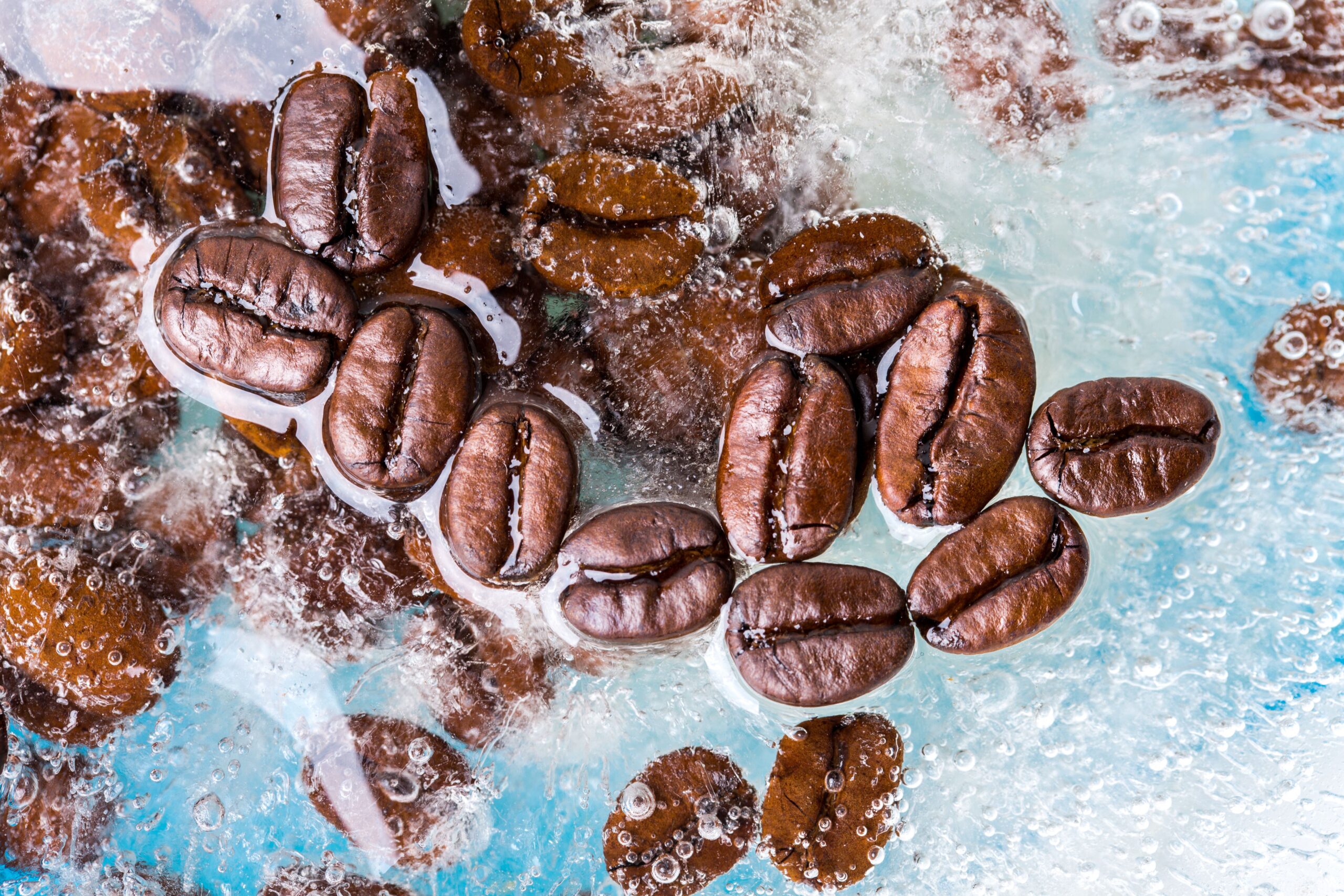All products featured on WIRED are independently selected by our editors. However, we may receive compensation from retailers and/or from purchases of products through these links. Learn more.
Coffee is a fast-ticking clock. And the end of this stopwatch is nothing you want. Fresh coffee is all about aroma and intensity—the delicate notes of toffee or nectarine that make each bean distinct. Old coffee loses all of this. It tastes instead acrid and flabby, like a cup of wet cardboard.
But freshness is a difficult target. I drink coffee about like a horse takes to water, but I buy it just as impulsively. I am also constantly testing out coffee to find the Best Coffee Subscriptions, and to give each brand a fair shake, I always drink those fresh in the optimal tasting window. Which means the rando special bag I bought for myself last Thursday often has to wait. And sometimes I can’t manage to brew all my coffee within a few weeks of its roast date.
That’s where freezing comes in.
So, should you freeze coffee beans? Or is freezing just a new way to mess up coffee beans—by introducing frosty moisture, or tainting it with the smell of the frozen chicken and peas in your icebox? The answer, according to coffee experts and chemists alike, is that you’re probably better off freezing coffee than letting warm air do its slow work. But this is only true if you do it correctly.
What’s more, frozen beans can in fact lead to better flavor on light-roast coffee in particular, according to at least one study—because it helps you get more consistent coffee grounds and therefore better flavor. More on that later.
Here’s a quick rundown on how to keep your coffee fresh without also ruining it, and why frozen coffee sometimes trumps fresh.
When Does Coffee Start Going Stale?
Believe it or not, there’s such a thing as coffee that’s too fresh. You probably don’t want to brew coffee the day after it’s roasted. For light roasts in particular, most roasters tend to recommend you wait five to seven days after the roast date before brewing, in order to allow your coffee to off-gas a bit and become a little easier to extract. This is especially important when it comes to espresso, where extraction is a volatile and finicky process.
But, alas, if you just leave the coffee in its bag, on the counter, it may start to go stale beginning a couple weeks later. You know that nice smell of fresh coffee beans? Those lovely aromatic compounds are exiting the beans, and dispersing into the air: That’s why you can smell them. Eventually, they’ll diminish. At the same time, oxygen is sneaking in to do its grim work, turning your beans to stale rust.
Depending how it’s stored, coffee can begin to degrade anywhere from two weeks to a month after roast date (i.e., the optimal window may just be a week or two for each bag).
You can delay this a bit by storing the coffee in an airtight container. One that I particularly like (and that we recommend in our Gifts for Coffee Lovers guide) is the vacuum-sealed Fellow Atmos. This can keep your beans fresher for longer on your counter and also keep them from taking on bad aromas in your freezer.
When to Freeze Coffee Beans
If you know you’re not going to get through a bag of beans, the best time to freeze is not when your beans are already starting to go stale. Rather, do so just before the optimal flavor window.
The science on the staying power of frozen coffee is somewhat thin, notes Christopher Hendon, a materials chemist at University of Oregon, whose research into coffee extraction and flavor has earned him the nickname “Dr. Coffee.” But there’s reason to believe freezing slows the staling process but doesn’t halt it.
“My inclination is to think that if you freeze something, all the kinetic processes slow down a lot, and so you’d expect it to stale less quickly,” Hendon told WIRED in August. But those volatile compounds? Gases both exiting and entering the bean? Those processes will still continue, albeit more slowly. So this is why you might freeze coffee early, to give it a chance to get to optimal flavor even while frozen.
But if your coffee is already starting to go stale? It’ll still get a little more stale in the freezer. Just a bit more slowly.
How to Properly Freeze Coffee Beans

Photograph: Matthew Korfhage
There are a few main principles to properly freezing your beans.
- Vacuum-seal your coffee, to whatever degree possible
The key to avoiding moisture and bad aromas is to store it correctly, so that the coffee isn’t ruined by volatile temperatures, frost, or terrible terrible aromas from whatever you’ve got stored in your fridge. People with sensitive palates, for example coffee expert James Hoffmann, tend to be quite sensitive to any freezer aroma contamination—and coffee does love to take on flavors.
So, don’t just stick your coffee bag straight into the freezer and use it like a coffee bag. It’ll frost over. It’ll taste weird. To avoid all this, recommends Hoffmann and others, you’ll want to use airtight or vacuum-sealed storage to keep your coffee safe from tasting like meat. Using vacuum sealer bags or even zipper bags can feel wasteful over time. And so an Atmos in the freezer is one good reusable solution.
Note that the back of the freezer is likely to have more stable temperatures than the front and thus be less likely to expose the coffee to the chance of freezing and unfreezing over and over.
- Seal coffee up in small portions, and don’t keep opening and closing your freezer bag
Ideally, you also want to avoid opening and closing your cleverly vacuum-sealed bag, then putting it back in the freezer. The reason is simple: You’ll let in moist air from the outside, then this will freeze in your freezer bag. You’ll get ice and moisture. And too much moisture will change your coffee in some unknown way.
One option is to use ziplock bags inside a container, such as the Atmos. Another, less wasteful option is a reusable zipper bag, like silicone Stasher bags, which have the added benefit of not being made out of plastic. This will also let you seal up your coffee in small doses, so you can pull out smaller quantities at a time without adulterating them.
- Still use your frozen coffee within a few months
The clock didn’t stop ticking. It’s just ticking slower. Carbon dioxide and other volatile aromatic compounds will still leave your coffee beans over time, even if you’ve effectively sealed it up. Your coffee will degrade unless it’s much, much colder than your home freezer will ever get—getting stale in a matter of three to six months but probably getting some other version of freezer burn long before that.
Frozen Coffee Might Taste Better Than Fresh Coffee

Photograph: Matthew Korfhage
Here’s a funny conundrum. Coffee from fresh beans is always better, of course. Except when it isn’t. Sometimes it’s possible for frozen coffee to taste better because of a quirk of physics called “glass transition.”
Under most circumstances, light-roast coffee beans are difficult to grind evenly. Unlike dark-roast beans, which crumble easily, lighter-roast beans are denser. They break up into bigger pieces. They resist a grinder. And so they often don’t grind as evenly or easily, if you don’t have an excellent grinder that’s designed well for light roast. (See WIRED’s guide to the best coffee grinders.)
But freezing light-roast beans can make them grind more evenly, according to a study by Dr. Hendon at the University of Oregon, published in Nature in 2016.
“Our current understanding is that coffee, solid coffee—as in, like, coffee beans—undergoes what’s known as a glass transition, which is a solid-to-solid phase transition,” Hendon told me this August by way of explanation. “The mechanical properties of the coffee itself are affected in some meaningful way: In this case, coffee goes from being maybe sort of spongy to being more brittle.”
Which is to say, frozen light-roast coffee breaks easier, and it breaks more evenly. I encourage you to look at the pretty graphs in Hendon’s article. But I also tested this myself using a device called the DiFluid Omni particle size analyzer and also WIRED’s favorite coffee grinder, the Baratza Encore ESP.
-
Photograph: Matthew Korfhage
-
Photograph: Matthew Korfhage
Starting with a bag of fresh (and delicious) light-roast Ethiopian Halo beans from Portland’s Heart Coffee, I froze one ziplock bag of beans and ground it with the Encore ESP—then put the coffee grounds through particle-size analysis. I then used the same grinder setting on unfrozen beans.
Omni via Matthew Korfhage
Omni via Matthew Korfhage
The results weren’t dramatic, but they did back up Hendon’s study: The frozen beans ground up more finely. They also ground up more consistently: The standard deviation on the frozen beans was about 10 percent smaller than with the unfrozen beans. My own results amount to anecdotal confirmation, of course—but they did line up with Hendon’s study.
But it amounts to a surprising argument for freezing beans, especially if you’ll have a hard time brewing your beans within their optimal flavor window otherwise. Because in coffee, better grind is better flavor.








